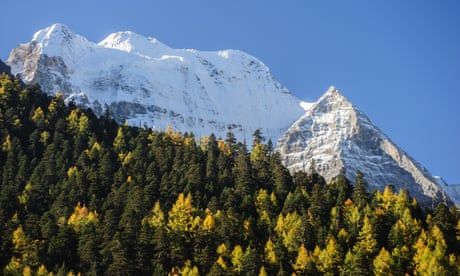
Star-gazer’s long-exposure shots unexpectedly capture mysterious blue light of triboluminescence
On 27 October, photographer Shengyu Li set up his camera on a long exposure to record stars in the night sky near a mountain in Sichuan, China. As he waited, suddenly an unstable block of ice broke free from a glacier near the peak of the mountain and set off an avalanche. Looking at his photographs afterwards revealed mysterious blue flashes given off from the avalanche, when the ice crashing down smashed into rocks and the friction gave off the flashes of blue light. It was a phenomenon called triboluminescence, which occurs when certain materials are mechanically stressed from fracturing, scratching or rubbing.
This strange effect was widely seen in the 1790s, when sugar began to be produced with more refined sugar crystals. These crystals were made into large cones which could be nipped into chunks as needed. If the nipping was done in dim light, it gave off tiny bursts of light. Something similar is caused by rubbing the sides of quartz crystals together or even when pulling sticky tape from a roll.
Continue reading...